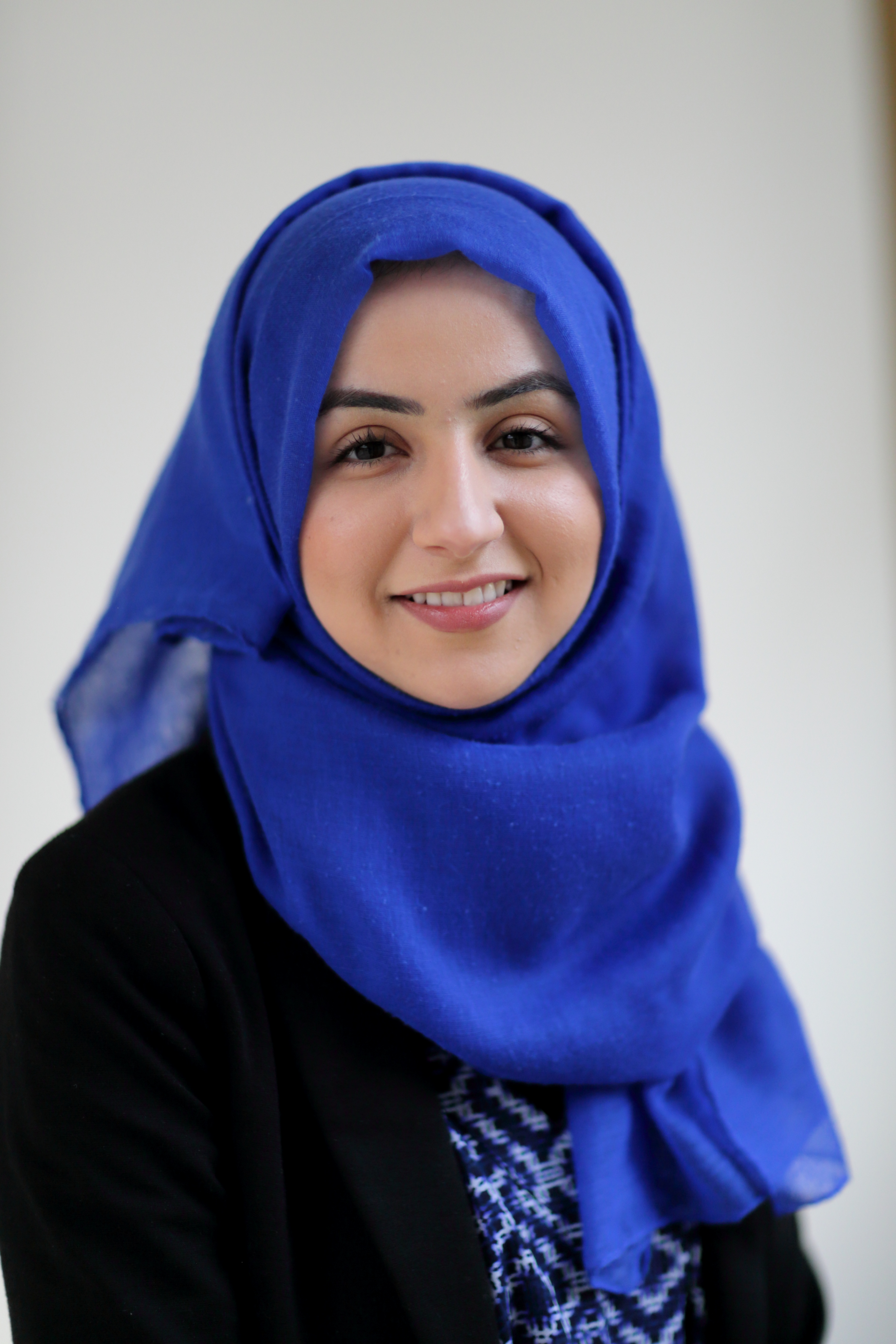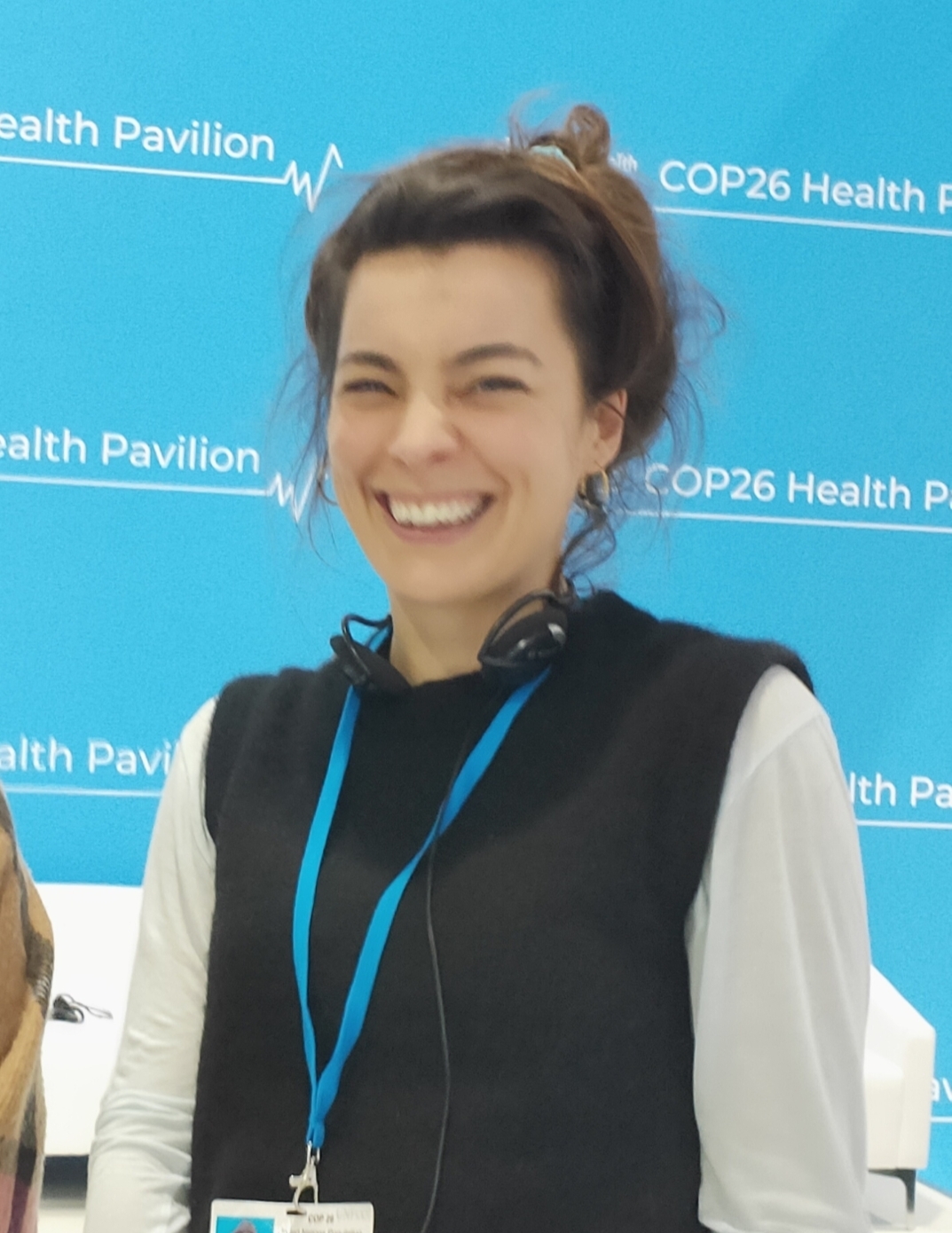Study options
- Starting in
- September 2025
- Location
- Whitechapel
- Fees
- Home: £12,250
Overseas: £24,250
EU/EEA/Swiss students
What you'll study
If you are involved in health policy and health systems as a medical practitioner, civil servant, lawyer, social or political scientist, or NGO worker, this may be the programme for you. It will interest policy makers who want to understand the bigger picture about global health.
Alongside a suite of modules offered in conjunction with the Wolfson Institute of Population Health MSc in Global Public Health and Policy, you will study compulsory modules in research design - encompassing qualitative and quantitative methods – taught in the School of Politics and International Relations at Queen Mary, alongside social science students.
You will begin by developing knowledge of the key concepts and research methods and analysis. These will give you relevant methodological issues and challenges while providing interdisciplinary foundations. As the programme continues, you will gain a more detailed understanding of areas relevant to your interests through specialist and elective modules.
Queen Mary University of London's Faculty of Medicine and Dentistry is comprised of two renowned and prestigious teaching hospitals: St Bartholomew’s and The Royal London. Both continue to make an outstanding contribution to modern medicine and together have been consistently ranked among the top five in the UK for medicine.
Structure
- Six compulsory modules
- 15,000-word dissertation
Compulsory/Core modules
This module will examine the theories and evidence underpinning social inequalities in health (defined as the unfair and avoidable differences in health status). It will consider structural/material and psychosocial theories, and hypothesis about social drift, self-selection, and genetics. Attention is given to the WHO Commission on Social Determinants of Health. Sources of data and measurement of scale of inequalities between and within groups are addressed. The module will consider association with income and distribution of money, resources, and power at global, national, and local level. Policy interventions and their different approaches will be explored including universal and targeted or selective approaches to reducing inequalities by reducing the inequitable distribution of power, money, and resources.
This core module on the MSc Global Public Health and Policy offers students the opportunity to pursue an area of interest in depth in public health and global policy and produce a critical and scholarly study. Students will either select a project from a range on offer, mostly from supervisors in the Centre for Public Health and Primary Care, or (in discussion with their academic adviser and a potential supervisor) devise and focus their own small project. The advanced analytic and writing skills required for this module will be supported by a series of seminars covering literature searching, critical evaluation of evidence, organising and managing a major piece of academic work, and presentation and writing skills. Students will acquire skills in developing, planning, organising, and focusing a project as they work on a one to one basis with their supervisor. They will also acquire skills in searching, critically appraising, summarising and synthesising the literature.
In this module we address the fundamental public health question of how best to finance and organise health systems in order to achieve universal health coverage and the effective delivery of comprehensive PHC. We will be particularly concerned with the ways in which health care systems differ from the perspective of access to services among different social groups within the population, and also with the distributive effects of different organising principles such as market and public control. The relationship between health systems and the Primary Health Care Approach will be covered, as well as key debates around the interface between aid, global health governance and national health systems. This module will also cover the essential economic theories used to inform health systems policy.
The module provides you with advanced research skills, including the ability to select and use relevant resources effectively and to devise research questions appropriate for postgraduate research. You will develop the capacity to undertake independent guided research at postgraduate level.
This module teaches you to use advanced quantitative skills appropriate for postgraduate research. Further, you will be able to analyse, interpret, critique and replicate published research using quantitative research methods and will acquire sufficient technical competence using SPSS to perform a range of quantitative techniques in your own research.
Elective modules
The module will take the student on a journey through seven major areas of contemporary medical ethics: consent and consensus medical confidentiality, the discourse on distributive justice, human and animal research ethics, end-of-life ethics, transplant ethics, and reproductive ethics. The introductory presentation of each of these topics will be followed by a critical discussion on their possible history and on the theoretical and practical implications of the competing conclusions.
The module will introduce key theoretical themes and concepts in anthropology which relate to global health issues. A range of topics will be presented which demonstrate how anthropologists have understood global health issues as biological, cultural and social in nature. The content will include theoretical perspectives in medical anthropology, illness narratives, biopolitics, pharmaceutical governance, health citizenship, structural violence and social suffering, medical technologies, global mental health, the anthropology of communicable and non-communicable disease, medical pluralism, and the anthropology of bioethics.
Recent media coverage and debate over female genital mutilation, trafficking, circumcision, gender reassignment, trans issues, and LGBTQI healthcare provision, have moved gender and sexuality to be central issues in health and human rights. Often in public health and medicine, through the adopting of a biomedical model, 'gender' is coupled with `woman' and heterosexuality assumed. Public and academic debate, though, regularly unpacks, even attacks, these assumptions. This module responds to such shifts and debates, encouraging students to explore contemporary issues around gender, sexuality and health in society through seminars and self-directed research. Students will be able to critique recent developments and theories, synthesizing different approaches to articulate the broad array of potential developments around gender and sexuality in public and global health policy and practice. This module aims to develop and deepen the students' knowledge and skills regarding gender and sexuality around global health policy and practice. It aims to develop an understanding of the diversity of conceptions and debates inside and around global health in responding to challenges to traditional and biomedical understandings of sex, gender, and sexuality, and to allow students to re-evaluate their own approaches and assumptions using appropriate theories and experiences. It aims to develop in students an understanding of the current debates, encouraging them to reflect on challenges and corresponding political and social movements. Students will be able to critique recent developments and theories, synthesizing different approaches to articulate novel developments, interventions and policies. The module aims also to allow students to conduct a piece of research on a topic of their own interest or from a list of suggestions, developing both their research practice and allowing engagement with contemporary or critical issues.
The protection of public health at the national and subnational level often depends significantly on various decisions made at the international or global level by regimes, including those related to trade, finance, law, diplomacy and inter-governmental relations. Such regimes can have a profound impact on the determinants of health as experienced within countries, at the national and local levels, and have become increasingly important as a result of ever-deepening forms of `globalisation' and the threat of global hazards to health such as large-scale global environmental change. This module provides an introduction to the disciplines of international relations, international politics, international jurisprudence, globalization and global governance as they relate to global health. It will examine the content and operation of various supra-national policy instruments, structures, institutions and processes, and place these within the context of the right to health and contemporary controversies and topical issues being confronted by the global health community.
In this module we examine trends towards the reform of health systems in the context of globalisation. Particular attention is given to the impact of neoliberal policy and commercialisation; the move towards universal health coverage; policy on integration; and decentralisation. The role of actors in shaping policy will also be covered, as well as the impact of trade and investment related agreements on health systems. The impact of other aspects of globalisation on health systems - such as migration - will also be covered.
The module considers drug discovery and the forms and stages of clinical trials. Examples will be given of the influence of networks of public-private partnership on drug approvals. A further focus will be on the regulation of medicines and how patterns of national and regional pharmaceutical production and supply are affected by international regulation such as TRIPS, TTIP and international institutions such as the International Conference on Harmonisation of Technical Requirements for Registration of Pharmaceuticals for Human Use (ICH). The module will also give a comparative overview of national regulatory standards for the production, quality control, distribution, prescribing of medicines, and systems of pharmacovigilance. It will also cover issues related to access to medicine and identify areas in which the market has failed to meet global health needs. For example no new drugs have been developed since the 1950s for `neglected diseases' such as chagas in Latin America and leishmaniasis in Africa, and current drugs for these diseases are prohibitively expensive; at the same time infectious disease in poorer societies remains untreated, and the global market for anti-depressants has grown.
This module will introduce the student to historically grown concepts of ecological global health. It gives an overview of scientific background on planetary boundaries in relation to health and sustainable development, allowing people to comprehend and apply the analysis to case studies. The module will begin with a human rights approach to health and environmental justice as a tool for critical analysis of the complex interrelationship of historically grown political, economic, cultural and social factors that have impacted the planetary system, putting health of people at risk. It will engage with public policy, international relations, health centred global environmental governance and medical anthropological approaches to health and environment to provide students with the necessary tools to engage in current local, national, regional and global affairs.
Assessment
Your assessments will take a number of different forms, including:
- coursework essays
- assignments
- presentations
- examinations.
You will need to achieve an overall pass in the taught element in order to progress to your dissertation.
Teaching
You will experience a range of teaching methods, including small group seminars and participation in public health conferences. You will develop debating and discussion skills, and have plenty of contact with academics.
Where you'll learn
Facilities
At Queen Mary you will have access to a number of advanced facilities, some of which are designated exclusively to postgraduate students. These include:
- The Blizard Building, which has state of-the-art facilities for students and staff including open-plan research laboratories, office space, a 400-seater lecture theatre and a café, and several seminar rooms
- A Learning Resources Centre, open around the clock, with 200 networked PCs solely for the use of postgraduate students
- Medical libraries located at The Royal London and St Bart's hospitals and at the Queen Mary Mile End campus
- Access to the Postgraduate Reading Room
- Research access to the British Library.
Campus
Your postgraduate learning experience is enhanced by our fantastic location in Whitechapel, in east London.
Not only are we in one of the capital’s most vibrant areas to live and work but we also serve a diverse local community, with 92 different languages spoken by the borough’s 300,000 residents. This programme offers you exciting opportunities to develop an understanding of health and disease in a local, national and international context.
About the Institute
Wolfson Institute of Population Health
This course is based at the Wolfson Institute of Population Health, which delivers internationally recognised research and teaching in population health. The Wolfson Institute is a part of Queen Mary University of London’s faculty of medicine and dentistry.
The work of our researchers and educators has had a significant impact on lives across the world. We provide integrated teaching and training opportunities delivered by leaders in the field. By sharing knowledge and pushing the boundaries of research, we will continue to advance population health and preventive medicine on a global scale.
Queen Mary is a member of the Russell Group of leading research universities in the UK and the Faculty of Medicine and Dentistry proudly holds an Athena Swan Gold Award in recognition of our commitment to gender equality.
Career paths
The course is designed for students who want to progress on to a PhD. You could end up working in health and public policy at local, national, or international level, as well as in governmental and international bodies and NGOs.
Our students have gone on to further postgraduate research both at Queen Mary and other universities.
- 97% of global health postgraduate taught graduates are in employment or further study 15 months after graduation (2021/22)
- 79% of global health postgraduate taught graduates are in highly skilled work or graduate study (2021/22)
Fees and funding
Full-time study
September 2025 | 1 year
- Home: £12,250
- Overseas: £24,250
EU/EEA/Swiss students
Unconditional deposit
Home: Not applicable
Overseas: £2000
Information about deposits
Queen Mary alumni can get a £1000, 10% or 20% discount on their fees depending on the programme of study. Find out more about the Alumni Loyalty Award
Funding
There are a number of ways you can fund your postgraduate degree.
- Scholarships and bursaries
- Postgraduate loans (UK students)
- Country-specific scholarships for international students
Our Advice and Counselling service offers specialist support on financial issues, which you can access as soon as you apply for a place at Queen Mary. Before you apply, you can access our funding guides and advice on managing your money:
Entry requirements
UK
Degree requirements
A 2:1 or above at undergraduate level in a relevant subject, such as Medicine, Nursing, the health sciences or the social sciences.
Applicants with a 2:2 degree and relevant experience in the field will be considered on an individual basis.
Find out more about how to apply for our postgraduate taught courses.
International
English language requirements
The English language requirements for our programmes are indicated by English bands, and therefore the specific test and score acceptable is based on the band assigned to the academic department within which your chosen course of study is administered. Note that for some academic departments there are programmes with non-standard English language requirements.
The English Language requirements for entry to postgraduate taught and research programmes in the Wolfson Institute falls within the following English band:
Band 4: IELTS (Academic) minimum score 6.5 overall with 6.0 in each of Writing, Listening, Reading and Speaking
We accept a range of English tests and qualifications categorised in our English bands for you to demonstrate your level of English Language proficiency. See all accepted English tests that we deem equivalent to these IELTS scores.
Visas and immigration
Find out how to apply for a student visa.










